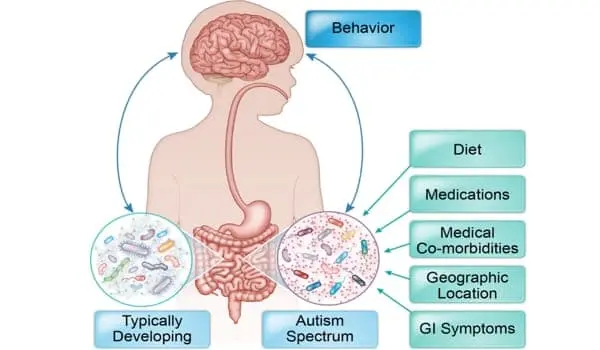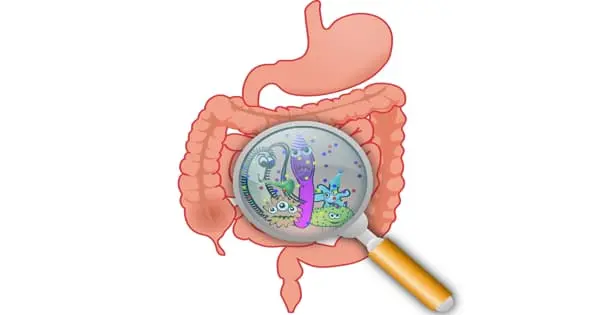A new study discovered that infant boys with a higher composition of specific gut microbiota have better neurodevelopment. According to a new study, infant boys with a higher composition of specific gut microbiota have improved neurodevelopment.
The study, led by the University of Alberta, followed over 400 infants from the CHILD Cohort Study (CHILD) at its Edmonton site. Boys with a high Bacteroidetes bacterial composition in their gut at one year of age were found to have more advanced cognition and language skills one year later. The discovery was limited to male children.
“It’s well known that female children score higher (at early ages), especially in cognition and language,” said Anita Kozyrskyj, a professor of pediatrics at the University of Alberta and the principal investigator of the SyMBIOTA (Synergy in Microbiota) laboratory. “However, when it came to gut microbial composition, it was in male infants that we saw this clear link between Bacteroidetes and improved scores.”
“The differences in male and female gut microbiota are subtle, but data from the CHILD Cohort Study show that girls have more Bacteroidetes at a younger age. So it’s possible that most girls have a sufficient number of Bacteroidetes, which is why they outperform boys “Kozyrskyj threw in his two cents.
It’s well known that female children score higher (at early ages), especially in cognition and language. However, when it came to gut microbial composition, it was in male infants that we saw this clear link between Bacteroidetes and improved scores.
Professor Anita Kozyrskyj
The researchers, led by Kozyrskyj and associate professor of pediatrics Piush Mandhane, studied bacteria found in infant feces and identified three distinct groups with similar dominant clusters of bacteria. The infants were then assessed on a variety of neural developmental scales. Only male infants with Bacteroidetes-dominant bacteria showed signs of improved neurodevelopment.
The findings are similar to those of a previous study conducted in the United States, which discovered a link between Bacteroidetes and neural development. Bacteroidetes, according to Kozyrskyj, are one of the few bacteria that produce metabolites called sphingolipids, which are essential for the formation and structure of neurons in the brain.
“It makes sense that if you have more of these microbes and they produce more sphingolipids, then you should see some improvement in terms of the formation of neuron connections in our brain and improved scores in cognition and language,” she said.

Caesarean birth, according to Kozyrskyj, is one factor that can significantly deplete Bacteroidetes. Breastfeeding, a high-fiber diet, living with a dog, and exposure to nature and green spaces are all factors that positively influence infant gut microbiota composition.
While the findings do not necessarily imply that children with a lower proportion of Bacteroidetes will lag behind their peers in later childhood or adulthood, the researchers believe the study shows early promise as a way to identify children at risk of neurodevelopmental disorders.
The team will continue to monitor the infants who took part in CHILD to see if the findings can be used to predict autism or attention deficit/hyperactivity disorder. Moving forward, the researchers will look into a number of other factors that may influence infant neurodevelopment, such as stress and gut colonization by the bacterium Clostridium difficile.
“Your brain is very malleable during the first one to two years of life,” said Kozyrskyj. “We’re now seeing a link between its malleability and gut microbiota, which I think is very important.”
The research team will continue to follow the infants who took part in CHILD to see if the findings can be used to predict autism or attention deficit/hyperactivity disorder. They are also looking into other factors that may influence infant neurodevelopment, such as stress and gut colonization by the bacterium Clostridium difficile.
“Your brain is very malleable during the first one to two years of life,” said Kozyrskyj. “We’re now seeing a link between its malleability and gut microbiota, which I think is very important.” The study was published in the journal Gut Microbes under the title “Bacteroides-dominant gut microbiome of late infancy is associated with enhanced neurodevelopment.”
















